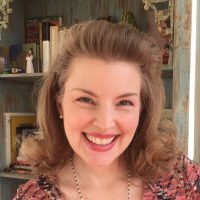View this post on Instagram
From as far back as I can remember, my mom and I believed we had lived many lifetimes together.
When she had me at only 16, I popped out as—in her words—“the wiser, more mature one” of the two of us, and indeed, I innately often stepped into the parental role to look out for the young girl I chose as my mother.
Yes, I said chose as my mother.
Growing up together, people marveled at my “old soul” nature and my mom’s and my quirky and playful role-reversal dynamic that seemed oddly natural for both of us—one that neither swung into the realm of dysfunction nor heaped unbalanced responsibility on my side. In fact, I carried a visceral sense that my soul had swooped into the fetus growing in my teen mom’s belly so that we could be together again as soon as possible.
Dare I say, on a spiritual level, I believed she needed me—a notion she came to embrace on her end too.
While this belief made perfect sense to my mom and me, I admit I viewed it from an insular perspective. It wasn’t until the year 2020, while working on a book project with an author client, that the idea of everyone choosing their parents crossed my radar. Sure, it had made sense to me in our little world, but on a global scale, I couldn’t quite get my head around it.
My family hadn’t been typical, but I’d been enveloped in its own particular brand of ideal. What about kids who grew up in severe poverty, or in abusive situations, or in war-torn countries? Who, I wondered, would ever choose that?
With deeper reflection and further study of near-death experiences and documented accounts of “lives between lives,” this theory not only moved from conjecture to credible, but it answered for me some of the most perplexing life questions.
In short, everything suddenly crystalized.
As humans, it is nearly impossible to comprehend a child choosing cruel parents, or a life of seeming misery, or a blatant lack of opportunity. Many people view being born into a “hard” life as everything from unfortunate luck of the draw to “proof” that there’s no benevolent Creator. Karma explains it as “you reap what you sow” from one incarnation to the next, reflecting the paradigm of reward and punishment—a model that can be both argued and supported from multiple viewpoints.
But what if we look at it from a soul level, retaining the choice and free will we humans so treasure, minus the wrath and punishment so many have been conditioned to believe in, and understand that as spiritual beings, we come here to have a physical experience—and as sparks of the Divine, we get to choose the environment that best aligns us with our chosen purpose for each experience as part of a co-creative process.
With that in mind, look at your own life and ask yourself:
Why might my soul have chosen these parents, or this family? What soul growth might I have needed that these people would be capable of showing me, or that my environment would provide for me? Might it be compassion? Forgiveness of self or others? Breaking a pattern? Shifting away from who I was in a past life? Developing empathy?
From this lens, you are not a victim of circumstance, and certainly not being punished by a wrathful God, or overlooked by an uncaring or even nonexistent Source. Instead, you have full accountability for your choice, based on what your soul hoped to gain through a particular experience.
In other words, in your own infinite wisdom, from your connection with the Divine or Higher Consciousness, you have placed yourself where you have the opportunity to learn specific lessons for the expansion of your soul. And if you’re a parent, you can take it further by asking yourself, Why did my children choose me?
In my case, being my mom’s mother at times throughout our journey, in this lifetime, felt not only like the fulfillment of a pact my mom and I made on a soul level to always find each other and connect in meaningful ways, but also perhaps to “return a favor” to her. When my mom confessed to me in later years that she believed she was headed down a bad path as a teen, and that having me saved her in a multitude of ways, our connection appeared even more profound.
Did I feel somehow used in that scenario? On the contrary. I had no doubt I was meant to be a daughter who sometimes doubled as a nurturer, and from the perspective of having chosen my mom, I’ve come to revel in that providence—and in all the gifts we gave to each other—with enormous gratitude.
~











Read 1 comment and reply